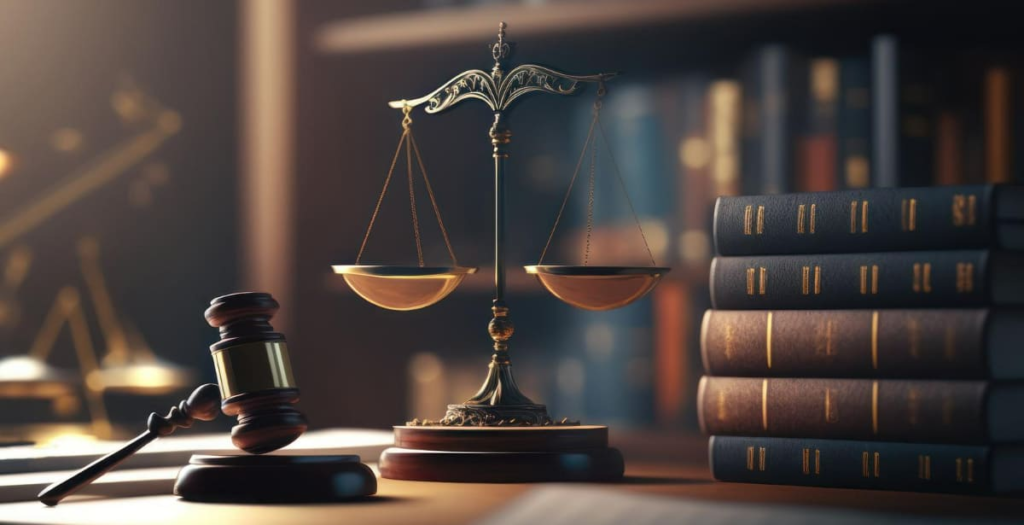Exploring the criminal appeal process can be complex and stressful. Understanding the steps included can assist with facilitating this weight. This clarifies the criminal appeal court procedure. It highlights vital stages and significant contemplations.
Understanding Criminal Appeals
A criminal appeal is a request to a higher court to review a lower court’s decision. It’s anything but another trial. All things being equal, it centres around legal errors that might have occurred during the underlying trial. A criminal appeal lawyer assumes a fundamental part in this process, it are safeguarded to ensure that your rights.

Filing a Notice of Appeal
The most vital phase in the appeal process is filing a notice of appeal. This should be completed within a specific time period, for the most part, within 30 days of the decision. The notice is documented by the court that made the first decision. This record illuminates the court and the restricting party that you plan to appeal the decision.
Preparing the Record on Appeal
The record on appeal incorporates all archives and documents from the trial court. This record is fundamental as it gives the premise to the appeal. It includes the trial record, evidence, and some other relevant reports. Your lawyer will review these materials to identify any legal errors.
Writing the Appellate Brief
The appellate brief is an essential report of the appeal process. It frames the legal arguments for the appeal and must express the errors made during the trial and how they influenced the outcome. The litigant (the individual appealing) submits their brief first, followed by the appellee’s (the restricting party’s) brief.
Oral Arguments
At times, the court might plan oral arguments. The two players can present their cases to the judges during these arguments. This is an opportunity for your criminal appeal lawyer to highlight central issues and answer any inquiries from the judges. Oral arguments are not generally required, yet they can be significant in complex cases.
The Decision
After reviewing the briefs and hearing oral arguments, the appellate court will make a decision. The court can affirm the first decision, reverse it, or remand the case to the trial court for additional proceedings. This decision depends on whether the appellate court tracks down any legal errors that impacted the trial’s outcome.
Possible Outcomes
There are a few possible outcomes in an appeal. The appellate court may:
- Affirm the Decision: The first decision stands, and no progressions are made.
- Reverse the Decision: The first decision is upset, which might result in another trial or different actions.
- Remand the Case: The case is sent back to the trial court for additional action, for example, another trial or re-sentencing.
Post-Appeal Options
If the appeal is unsuccessful, there might be extra options. You can record a movement for reconsideration, requesting that the appellate court review its decision. On the other hand, you can appeal to a higher court, like the state supreme court or the federal court system. Your lawyer can instruct you on the best course of action.
The Job of a Criminal Appeal Lawyer
A criminal appeal lawyer specializes in dealing with appeals. They are talented in identifying legal errors and crafting unquestionable claims. Their skill is vital in exploring the perplexing appeal process. From filing the notice of appeal to presenting oral arguments, a lawyer ensures your case is thoroughly reviewed and your rights are safeguarded.
The Significance of Timeliness
Timeliness is essential in the appeal process. Missing deadlines can result in a deficiency in your right to appeal. It is crucial to act rapidly and talk with a criminal appeal lawyer straightaway after the decision. They will ensure all essential records are documented immediately and correctly.
Understanding Legal Errors
Legal errors can take many structures. They might incorporate incorrect jury guidelines, inappropriate confirmation or rejection of evidence, or unfortunate legal behaviourr. Identifying these errors requires an exhaustive review of the trial record. Your criminal appeal lawyer will investigate the record to pinpoint any mistakes that might have impacted the decision.
Crafting Persuasive Arguments
Crafting a persuasive appellate brief is an artistry. It requires a profound understanding of the law and the ability to present complex legal arguments plainly and compactly. A criminal appeal lawyer will carefully develop your brief, highlighting the errors and their effect on the trial’s outcome. This report urgently persuades the appellate court to upset or modify the first decision.
Oral Argument Strategies
Oral arguments furnish a potential chance to cooperate directly with the judges. This stage permits your criminal appeal lawyer to accentuate central issues from the brief and address any worries the judges might have. Powerful oral arguments can have a significant effect on the appeal’s outcome. It requires speedy reasoning, intensive preparation, and a profound case understanding.

The Final Decision
The appellate court’s decision is the zenith of the appeal process. It reflects the court’s evaluation of the legal arguments and the trial record. While the decision is final, it isn’t generally the stopping point. Depending on the outcome, there might be further legal roads to explore.
Final Word
Exploring the criminal appeal court procedure requires skill, precision, and a careful understanding of the law. A talented criminal appeal lawyer is fundamental in directing you through this process. They ensure your case is presented and your rights are maintained.
Consider talking with professionals like Brownstone Law Appeal Lawyers if you need an appeal. Their experience and dedication can significantly affect the outcome of your case.
Also, Read The Following: Los Angeles Angels vs Tampa Bay Rays Match Player Stats.








